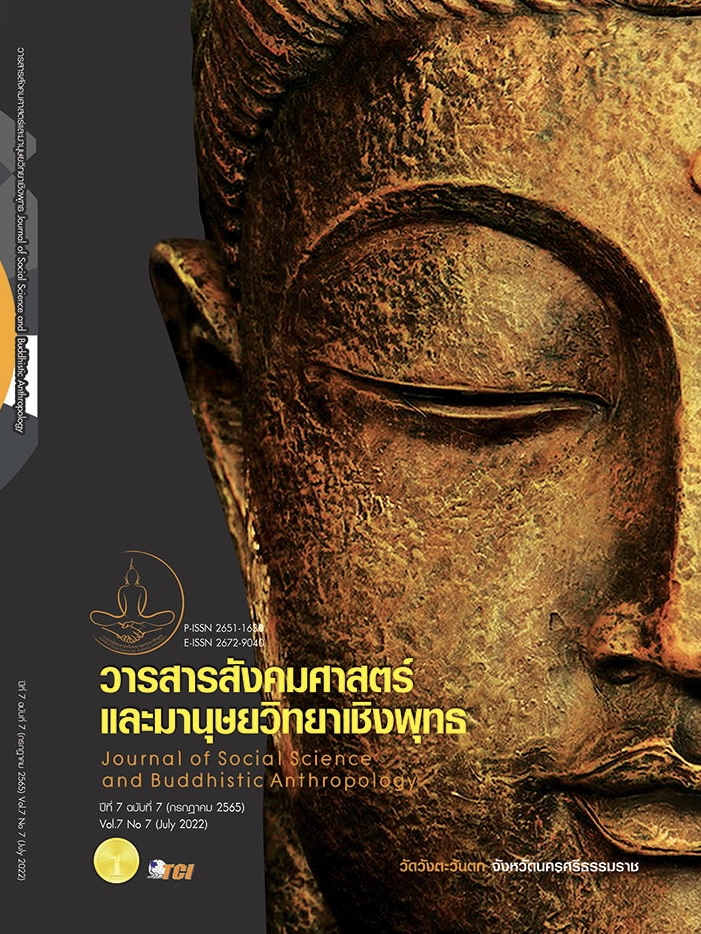EXPLORATORY FACTOR ANALYSIS OF SUPPLIER INTEGRATION AND SUPPLIER DEVELOPMENT IN THAI AUTOMOTIVE INDUSTRY
Keywords:
Supplier Integration, Supplier Development, Thai Automotive Industry, Exploratory Factor AnalysisAbstract
The Objectives of this research article were to analyze the latent variables of supplier integration and supplier development in Thai automotive industry, and to formulate strategies as well as to define variables for supplier management research especially Thai automotive industry. Those dimensions combine activities are supporting maximum positive results for adoption, in accordance with the context of the Thai automotive supply chain, thus performances measurement with R-Type Component exploratory factor analysis technique. The data from 172 automakers and auto parts supply chain managers based on a survey of 424 auto companies. The result indicated that supplier integration and supplier development have four dimensions (70.201 total percent of trace), including coordinating supplier integration (16.095 percent of trace), operating supplier integration (17.960 percent of trace), direct supplier development (24.22 percent of trace), and indirect supplier development and monitoring (11.925 percent of trace) and supplier integration and supplier development performances have four dimensions (72.43 total percent of trace) including relationship performances (17.837 percent of trace), firms’ performances (20.49 percent of trace) and suppliers’ performances were found to be divided into two dimensions: suppliers’ new product development performances (15.716 percent of trace), and suppliers’ operational performances (18.389 percent of trace)
References
ศูนย์สารสนเทศยานยนต์. (2561). สภาวะอุตสาหกรรมยานยนต์ไทยปี 2560 (มกราคม-กุมภาพันธ์). เรียกใช้เมื่อ 24 เมษายน 2565
Akamp, M. & Muller, M. (2013). Supplier management in developing countries. Journal of Cleaner Production, 56(1), 54-62.
Alam, A. et al. (2014). The mediating effect of logistics integration on supply chain performance a multi-country study. The International Journal of Logistics Management, 25(3), 553-580.
Blonska, A. et al. (2013). Decomposing the effect of supplier development on relationship benefits: the role of relational capital. Industrial Marketing Management, 42(8), 1295-1306.
Cao, M. & Zhang, Q. (2011). Supply Chain Collaboration: Impact on Collaborative Advantage and Firm Performance. Journal of Operations Management, 29(3), 163-180.
Chang, S. et al. (2006). Supplier involvement and manufacturing flexibility. Technovation, 26(10), 1136-1146.
Chung, S. & Kim, M. G. . (2003). Performance effects of partnership between manufacturers and suppliers for new product development: the supplier’s standpoint. Research Policy, 32(4), 587-603.
Danese, P. (2013). Supplier integration and company performance:A configurational view. Omega, 41(6), 1029-1041.
Das, A. et al. (2006). Supplier integration-Finding an optimal configuration. Journal of Operations Management, 24(5), 563-582.
Dyer, J. et al. (1998). Strategic supplier segmentation: the next best practice in supply chain management. California Management Review, 40(2), 57-77.
Ghijsen, P. et al. (2010). Supplier satisfaction and commitment; the role of influence strategies and supplier development. Journal of Purchasing & Supply Management, 16(1), 17-26.
Gu, Q. et al. (2017). The impact of information integration on financial performance: A knowledge-based view. International Journal of Production Economics, 191(1), 221-232.
Hair, J. F. et al. (2011). PLS-SEM: indeed a silver bullet. Journal of Marketing Theory and Practice, 19(2), 139-151.
Krause, D. & Ellram, L. M. (1997). Success factors in supplier development. Success factors in supplier development, 27(1), 39-52.
Krause, D. (1997). Supplier development: current practices and outcomes. International Journal of Purchasing and Materials Management, 33(1), 12-19.
Leender, M. R. (1996). Supplier development. Journal of Purchasing and Material Management, 25(1), 47-62.
Liker, J. K. et al. (1996). Supplier involvement in automotive component design: are there really large US Japan differences? Research Policy, 25(1), 59-89.
Modi, S. B. & Mabert, V. A. (2007). Supplier development: Improving supplier performance through knowledge transfer. Journal of Operations Management, 25(1), 42-64.
Park, S. & Hartley, J. L. (2002). Exploring the effect of supplier management on performance in the Korean automotive supply chain. Journal of Supply Chain Management, 38(1), 46-53.
Petroni, A. & Panciroli, B. (2002). Innovation as a determinant of suppliers’ roles and performances: an empirical study in the food machinery industry. European Journal of Purchasing & Supply Management, 8(3), 135-149.
Ragatz, G. et al. (2002). Benefits associated with supplier integration into new product development under conditions of technology uncertainty. Journal of Business Research, 55(5), 389-400.
Sharma, S. K. et al. (2011). Supplier issues for lean implementation. Supplier issues for lean implementation, 3(5), 3900-3905.
So, S. & Sun, H. (2010). Supplier integration strategy for lean manufacturing adoption in electronic-enabled supply chains. Supply Chain Management: An International Journal, 15(6), 474-487.
Tang, D. & Qian, X. (2008). Product lifecycle management for automotive development focusing on supplier integration. Computers in Industry, 59(2-3), 288-295.
Wagner, M. & Hoegl, M. (2006). Involving suppliers in product development: insights from R&D directors and project managers. Industrial Marketing Management, 35(8), 936-943.
Wagner, M. (2003). Intensity and managerial scope of supplier integration. Journal of Supply Chain Management, 39(3), 4-15.
Wagner. (2006). A firm’s responses to deficient suppliers and competitive advantage. Journal of Business research, 59(6), 686-695.
Wagner. (2011). Supplier development and the relationship life-cycle. International Journal of Production Economics, 129(1), 277-283.
Wong, C. W. et al. (2011). Value of information integration to supply chain management: Roles of internal and external contingencies. Journal of Management Information System, 28(3), 161-199.
Downloads
Published
How to Cite
Issue
Section
License
Copyright (c) 2022 Journal of Social Science and Buddhistic Anthropology

This work is licensed under a Creative Commons Attribution-NonCommercial-NoDerivatives 4.0 International License.









